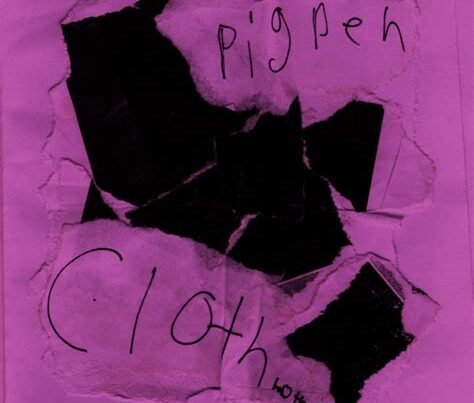Periphery has never been afraid of musical exploration, and Periphery V: Djent is Not A Genre is their most fearless foray yet, diving into metal, pop, jazz, orchestral music and more.
Release date: March 10, 2023 | 3DOT Recordings | Website | Facebook | Instagram
Periphery does not really need an introduction on this blog. The style of music they helped pioneer inspired its early formation, and has had a lasting effect on artists new and old who have made progressive and modern metal since. However, from the beginning, band leader Misha Mansoor explained that the name Periphery did not seem genre-specific and would not box them into a specific style. This lack of concern with genre tropes always attracted me to the band. Even on their first record, I was drawn to their mix of Meshuggah-like polyrhythms, mathcore technicality, alt-metal hooks, and ambient electronic interludes. This experimentation has only become more bold, folding in jazz, acoustic balladry and chiptune on Juggernaut: Alpha and Omega, symphonic elements on Periphery III: Select Difficulty, and industrial elements on Periphery IV: Hail Stan. Now, with the subject of today’s review, Periphery V: Djent Is Not A Genre, the quintet eschews any limitations to their sound for their most varied release yet.
You wouldn’t fully expect it from the first track though. “Wildfire” is an epic, heavy, and hooky track and fitting single to introduce to the album. I often find Periphery begin marketing their album with heavier singles (in this case the dual release of “Wildfire” and “Zagreus”) before introducing more melodic tracks (second track “Atropos”). Of course, that’s not to say “Wildfire” doesn’t have unexpected moments – there’s a glitched out jazz section in the middle featuring piano and saxophone solos, and dissonant vocal stacks in the chorus before we encounter a John Williams-meets-Danny Elfman orchestral outro.
“Atropos” then brings the more anthemic elements of their sound even further (alongside what is one of my favourite music videos I’ve seen in a long time), moving from the huge hooks of Juggernaut: Alpha into more traditionally polyrhythmic territory and closing again with a cinematic, orchestral outro that makes me want to hear Periphery score a film. While I would love to hear these cinematic elements more integrated throughout the tracks instead of acting mostly as outros, they show an evolution of Periphery’s interludes that began on their debut electronic elements and take them to astronomical levels of quality and range with this record.
It is hard to summarize these songs in meaningful ways. Periphery V only has nine songs like Periphery IV, but exceeds the previous record’s length by seven minutes. Six tracks exceed seven minutes, with its final two tracks each exceeding eleven minutes. Shorter tracks like “Wax Wings” use Mark Holcomb’s signature riffage in combination with soulful piano balladry for a heartfelt anthem, while “Everything Is Fine!” is perhaps the album’s most deliberately metal track. It features mathy dissonance, guitar solos, and even a traditional breakdown and a hook that will, I’m sure, be a crowd highlight. I can already hear audiences screaming ‘My body is not a haven, it’s a prison.’
It’s an interesting juxtaposition to have the album’s most metal track right before its decidedly least metal piece. The band’s various members have long expressed and demonstrated their love for pop acts like The 1975. “Silhouette” is unabashedly a pop song driven by synths. The drums are electronic, and while there are guitars, they accentuate the song as opposed to lead it. Spencer Sotelo soars here, showing a range and pop sensibility that he has cultivated through projects like Nik Mystery. Could a track like this alienate fans? I personally like to believe that Periphery fans enjoy the band for their fearlessness so I hope it won’t, especially because I think this song is one of the best on this record. But it’s also not a metal song, and it does not pretend to be.
However, if metal is what you want, the record delivers that too. In addition to the aforementioned tracks, the final three pieces on Djent Is Not A Genre are rooted in metal aesthetics. “Zagreus” features excellent motif references back to Juggernaut and to the videogame Hades, while “Dracul Gras” has theatrics that evoke the grandiosity of previous epic “Reptile” and a lo-fi synth outro. The record closes with “Thanks Nobuo”, which is a triumphant epic. It includes some upbeat and knotted riffage that I’m again tempted to attribute to Holcomb alongside hooks that Sotelo has refined to an incredibly sharp and memorable edge.
I find it hard to review a Periphery record with only a week to digest it. Their music is decidedly dense and intertwined, referencing their back catalog’s musical and lyrical motifs, video games, and other sources while being unrestrained genre-bending and astoundingly technical. I know I did not care for Hail Stan when I first heard it, only for it to later become one of my most listened-to Periphery records. I am not sure if I can confidently rank Periphery V in their discography, or if that ranking would mean a lot to you readers. All I can say is that it’s not my least favourite record of theirs, and more time will tell where it fits for me. I can imagine some new and old fans getting lost in the joyful abandon of genremashing that happens on the record, but I personally do not feel like quality is traded for versatility. If Periphery does something, they commit to doing it well. To me, it’s that commitment that ensures their boundless ambition is never restrained by their ability, and furthermore cements Periphery’s status as one of the leaders of modern progressive music. Also, Periphery V drops on my birthday, and, frankly, it’s quite the present.






